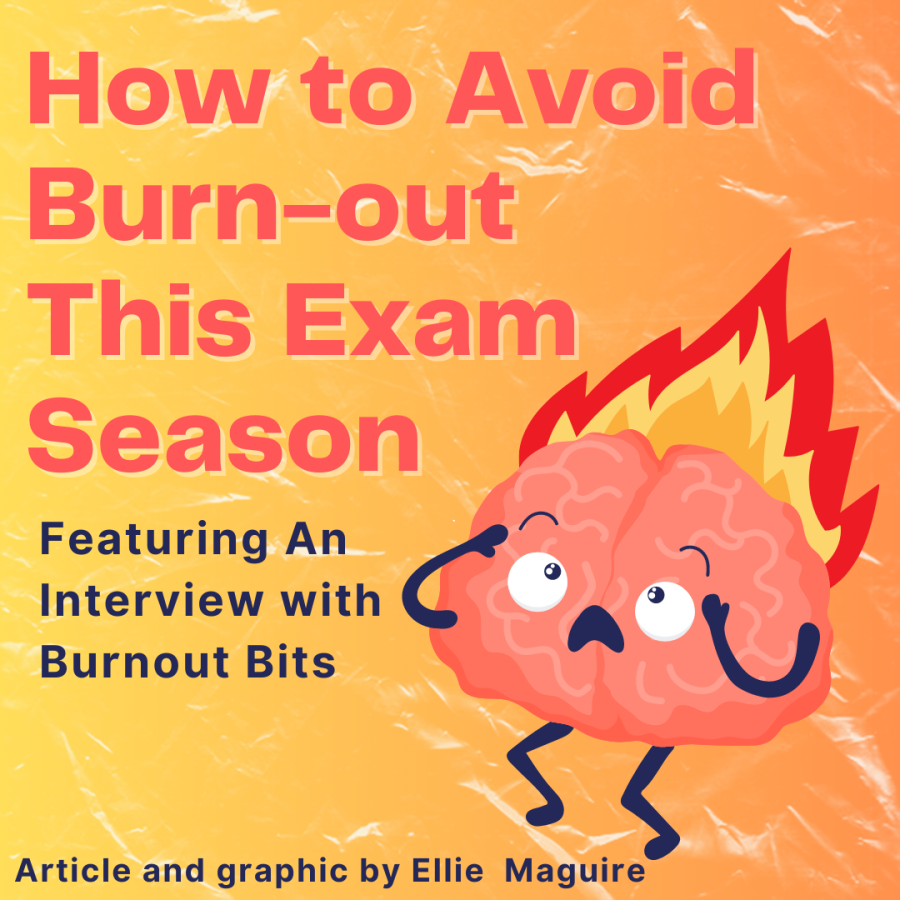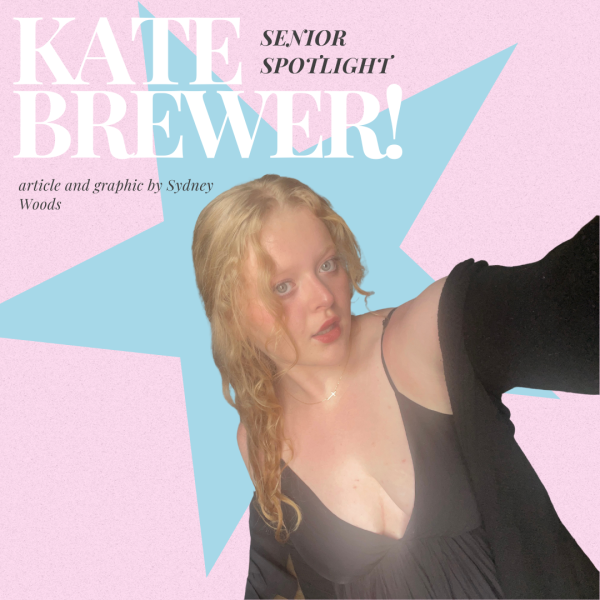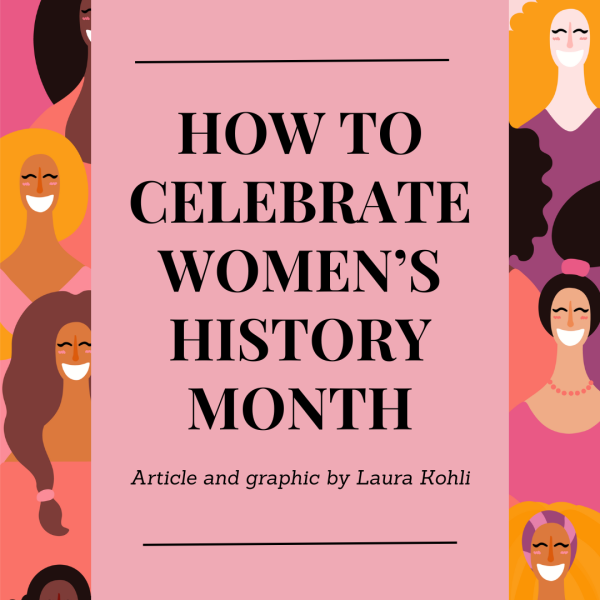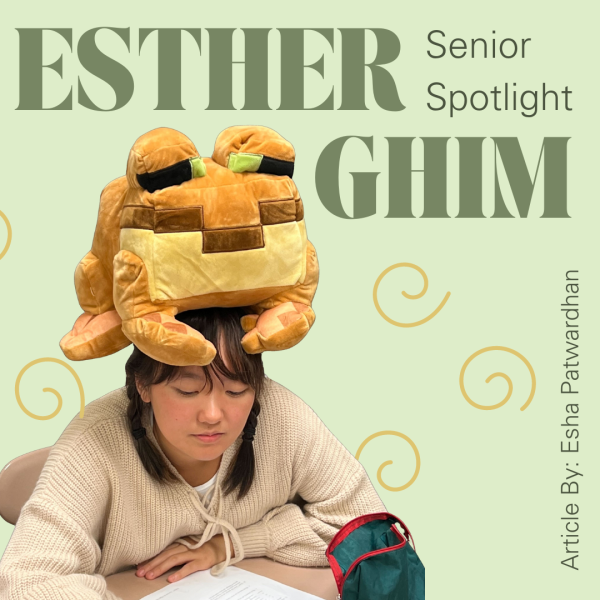How to Avoid Burn-out This AP Exam Season: An Interview with Burnout Bits
Burn-out, as defined by the World Health Organization, is “a syndrome conceptualized as resulting from chronic workplace stress that has not been successfully managed.” Burn-out syndrome is characterized by three things: extreme exhaustion, feelings of negativity, reduced productivity, and/or cynicism about one’s job. Burn-out is common among students who overwork themselves and busy their lives to an extent that is unattainable and produces unmanageable stress.
Many Enloe students might find themselves panicking or overwhelmed with the idea of studying for all their exams on top of their usual schoolwork. This can only be exacerbated when upon looking up helpful study tips for CollegeBoard, the first point almost always made is “Start EARLY. Take at least 1-3 months to study.” Well, it’s a bit too late for that, considering exams kick off in early May. Nonetheless, there is no need to panic. Studying processes are different for everyone, but it is vital to ensure you don’t overdo it regardless of how little time you may have.
Burn-out is becoming more and more evident among high schoolers and affecting their academic performance. A great local resource bringing attention to this epidemic is Burnout Bits (@burnout_bits on Instagram), a student organization from the Wake Early College of Health Sciences (WECHS). They publish interviews, tips, and more information regarding academic burn-out and how to avoid it.
The social media account was created by 4 current juniors at WECHS: Eliana Garcias, Gregory Sachan, Simran Takhar, and John Vanmeter-Kirk. Upon interviewing the account, they shared more about why they created it in the first place. “We were inspired to make this account after recognizing how normalized burn-out was for most of our classmates at WECHS. We hoped that we could create a resource for our peers to learn about burn-out and the ways they can help themselves manage it,” they said.
When asked how they gather their information to post, the group shared that they speak with their school’s psychologist. “We talked to our school psychologist to get some information and resources [who] also helped us fact-check our posts.”
In addition to sharing data on burn-out and scientific research behind the problem, the account posts videos of students who share first-hand experiences that are “beneficial to [Burnout Bits’] audience.”
Here is a short list of studying Dos/Don’ts created with the help of Burnout Bits:
Study Actively
Don’t just read over your notes a million times hoping it’ll stick. If it’s a science or social studies subject, you can rewrite your notes on one unit from memory each day to test yourself or talk out loud and pretend like you’re teaching the topic to someone who’s never learned it before. If it’s math you’re studying for, practicing problems and reviewing old tests are the best way to go.
Avoid Cramming: Plan Instead of Procrastination!
Procrastination is a big problem, which is what leads to cramming. To avoid it, you can
plan out your day with what you will be doing each hour and see how much you can realistically cover each week, allowing you to determine when you need to start studying. However, when planning, remember to not overdo it. Having a 5-hour long cram session will not help- nothing will stick. Your brain does not work that way. Take breaks. Study for 25 minutes, break for 5. Or if you can concentrate longer, study for 45, break for 10. You need to find the pattern that works best for you.
[Brain] Beauty Sleep
Sleep is very important!! If you are in a situation where you have to choose, it is better only to study the most important topics and get a good 7-8 hours of sleep, rather than to stay up to study everything and only get 3 hours. Memory consolidation (the process by which short-term memories are solidified and turned into longer-lasting memories) occurs when you are sleeping! If you don’t sleep, your brain does not have enough time to convert all of the information you just learned into long-term memories, and you’ll just forget everything anyways.
Prioritize Your Mind AND Body
The most important tip is: do not sacrifice your health. Even if performing well in your classes and clubs requires you to sleep less, give up exercise, etc., then it is important to evaluate where you can drop some responsibilities and ease your workload. At this age, we should try to avoid too much stress and stay happy and healthy!
Good luck studying!
PSA: AP and final exams are not everything, or even a lot of importance in the grand scheme of
things. Try your best, but at the end of the day, they should not dictate or control your life at the sacrifice of your general well-being. You are worth more than a test score.
You can learn more about time management techniques and managing burnout on the Burnout Bits account!
For more studying tips and information about burn-out, visit these links:
AP Exam Practice – AP Students | College Board.
Academic Burnout: How to Prevent it and What to Do | UoPeople
How To Avoid Academic Burnout In College
Your donation will support the student journalists of Enloe Magnet High School, allowing us to cover our annual website costs. We are extremely grateful for any contribution, big or small!

(She/her)
Ellie is a senior at Enloe and a proud member of the Eagle's Eye staff! She is involved in various communities at Enloe, including dance,...
















